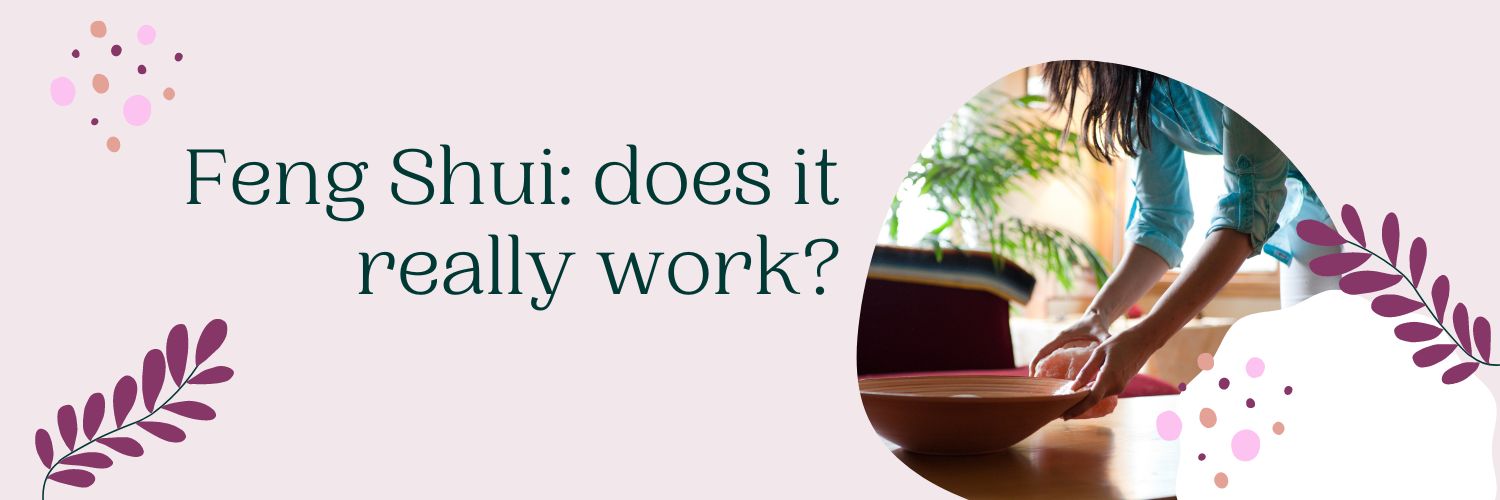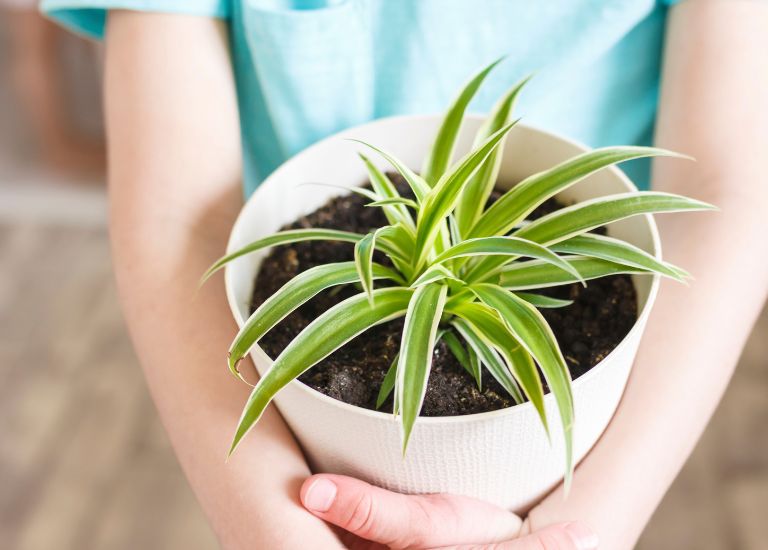Feng Shui: can it really improve your mood and make you healthier?

Disclaimer: this website does not provide medical advice. Articles are for informational purposes only and should not be used as a substitute for professional medical advice, diagnosis or treatment. Always seek the advice of your physician or other qualified healthcare provider with any questions you may have regarding a medical condition or treatment, and never disregard professional medical advice or delay in seeking it because of something you have read on this website.
Introduction
For many of us, maintaining a sense of wellbeing is high on our priority list; one often overlooked but powerful tool in achieving this is the ancient Chinese practice of Feng Shui. In this article, we’ll explore what Feng Shui is, how it can significantly enhance your quality of life, and provide practical steps to help you organise and beautify your home without breaking the bank.
What is Feng Shui?
Feng Shui is more than just a trendy term; according to National Geographic, Feng Shui is an ancient Chinese art of arranging buildings, objects, and space in an environment to achieve harmony and balance in a way that will bring peace and prosperity. The core principle is to create an environment that supports balance and good chi (energy). By applying Feng Shui principles to your home, supposedly you can influence the energy around you and, consequently, your own wellbeing.
In an increasingly cramped world, a modern guide to opening up your living space - and your life - using the ancient principles of feng shui.
How do you place a bed in an awkward room? How can your space help you be more focused and more productive? How do you set up your room to make you ready for romantic love? Our homes have an outsized impact on our wellbeing, so answering these questions is more important than ever.
How Can Feng Shui Improve your Quality of Life?
A tidy and organised home, according to Feng Shui, is not just aesthetically pleasing but also vital for your mental and emotional health, and even for your success in life. When your living space is clutter-free and arranged with intention, it can positively impact your mood, reduce stress, and enhance overall life satisfaction. The Feng Shui philosophy believes that your surroundings directly affect your energy levels, making it essential to create an environment that nurtures positivity and tranquillity.

A Welcoming Entrance
6 Steps You Can Take to ‘Feng Shui’ Your Home
#1 Declutter Your Space: Start by removing items you no longer need because a clutter-free environment promotes a clearer mind.
Top tip: pick a day that you can set aside a few hours and start with your wardrobe. Take out each item and ask yourself if you are ever going to wear it again, and be honest! We often hold onto items for years that we never wear – but the ideal situation would be to be able to open your wardrobe door and only see items of clothing that you would consider wearing.
#2 Create a Welcoming Entrance: Make your entryway inviting and clutter-free to allow positive energy to flow into your home.
Top tip: add some nicely potted plants outside the doorway of your house.
#3 Organise Your Kitchen: Keep your kitchen tidy and organised; it’s considered the heart of the home in Feng Shui.
Top tip: clear out your cupboards. We all fill up our presses with food that has been there for years and that we will never eat. Throw out anything out of date or that you are unlikely to ever use.

Nicely Organised Kitchen
#4 Fix Leaks and Repairs: Ideally you should address any household issues promptly. It can happen over time that little things malfunction but we don’t address them because we are busy and maybe they are not such a big deal – but they accumulate. According to Fing Shui, leaks and repairs symbolise draining energy.
Top tip: Walk around your house and make a list of everything that needs to be addressed and put them into a spreadsheet – one column for the issue and another for how you plan to address it. Maybe you can fix it yourself or perhaps you need a professional. Keep reviewing the list until everything is resolved!
#5 Introduce Plants: Plants bring life and positive energy in the Feng Shui tradition. You should choose plants that are easy to care for and suit your home’s lighting conditions.
Top tips: these are our three favourite plants because they are pretty and very hard to kill.
- Spider plant – can survive in a variety of lighting conditions and is always producing babies. You just need to remember to water it.
- Snake plant – doesn’t need much light so is very easy to care for. Don’t over-water it.
- Monstera plant – again doesn’t need direct light, just water once a week. It does need good support as it grows quite big.



Spider Plant
Snake Plant
Monstera Plant
#6 Personalise with Meaningful Items: Surround yourself with items that hold personal significance, creating a space that reflects your identity.
Top tip: when you travel, pick up crafts in the locations you visit. You can also use photos of friends, family and holidays to great effect.
6 Steps to Improve Decor without Spending a Lot
#1 Rearrange Furniture: Give your space a fresh feel by rearranging furniture, experimenting until you find a layout that enhances the flow of energy.
Top tip: if you can, pull the sofa away from the wall and centre it in the living room, this can give a more spacious feel.
#2 Add Throws & Cushions: Introduce cozy elements with throws, pillows and blankets in vibrant colours to uplift the energy of your living spaces.
Top tip: you can give an old sofa a face lift by covering it with a stylish throw.

Use of Throws & Rugs in Feng Shui
#3 Organise Bookshelves: Arrange books and decorative items on shelves with intention, as cluttered shelves can contribute to a sense of chaos.
Top tip: block off an hour in your diary, take everything down off the shelves, give them a good clean and put everything back in a neat and organised way. This is also a good opportunity to give anything to the charity shop that you don’t like anymore.
#4 Display Art Thoughtfully: Choose artwork that evokes positive emotions and arrange it strategically to enhance the flow of energy.
Top tip: visit charity shops when you can or look at online forums that list second hand goods, keeping an eye out for art that you might like. Sometimes, you might just like the picture frame but not the painting inside – you can buy it, repaint the frame a funky colour and insert an alternative print.
#5 Swap Out Old Lighting: Upgrade your lighting fixtures or change bulbs to create a warmer and more inviting atmosphere.
Top tip: lighting is very affordable, with great lamps on sale in IKEA. It can be nice in the evenings to have a lamp on rather than the full room lighting. You might not even need to change the light fitting, just the bulb for a warmer, softer light.
#6 Rotate Decor Seasonally: Keep things fresh by changing decor elements with the seasons to add some variety to your home.
Top tip: we all have a stash of Christmas decorations in the attic but why not have some for Easter, Halloween or any other festivals that are important to you.
Studies Supporting Tidy and Beautiful Environments
Several studies support the idea that a tidy and aesthetically pleasing environment positively affects mood and productivity.
A study, ‘No Place Like Home: Home Tours Correlate With Daily Patterns of Mood and Cortisol’, looked at the difference between the Cortisol levels of women living in organised or what they called ’restorative’ homes, and women living in cluttered or what they termed ‘stressful’ homes. They found that the women in the cluttered homes were more likely to have depressed moods and had Cortisol profiles associated with worse health outcomes.
Conclusion
Incorporating Feng Shui principles into your home is more than a design trend – it’s a holistic approach to improving your quality of life. By organising your space and adding thoughtful touches to your decor, you can create an environment that supports positive energy flow, reduces stress, and enhances your overall wellbeing.
We’ve given you lots of tips above on where you can start. The Seeoran team really do believe that a well organised environment, especially one where there are beautiful touches like nice colour schemes, plants and art pieces, make everyone who lives, works in or visits that environment feel good.
If you are interested in reading more on how to improve you wellbeing, check out our articles –
- Living Better and Longer: The Science Behind Blue Zone Lifestyles
- The Mind-Body Connection: How Your Thoughts Can Reverse Aging
What do you think? Do you think Feng Shui makes sense? Do you think it is worth the effort and time required to ‘Feng Shui’ your environment?


